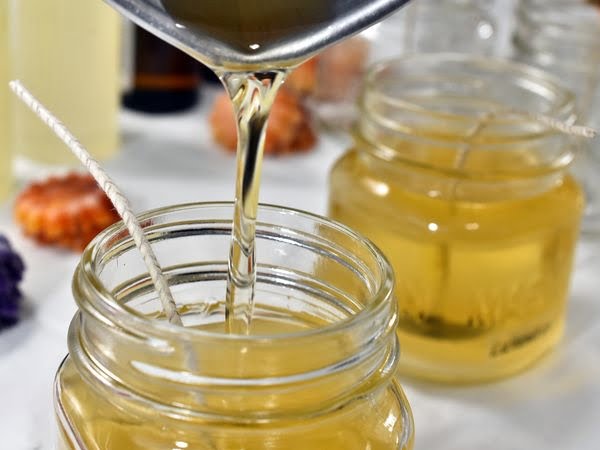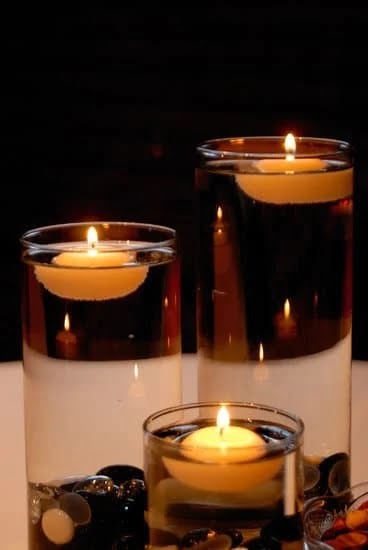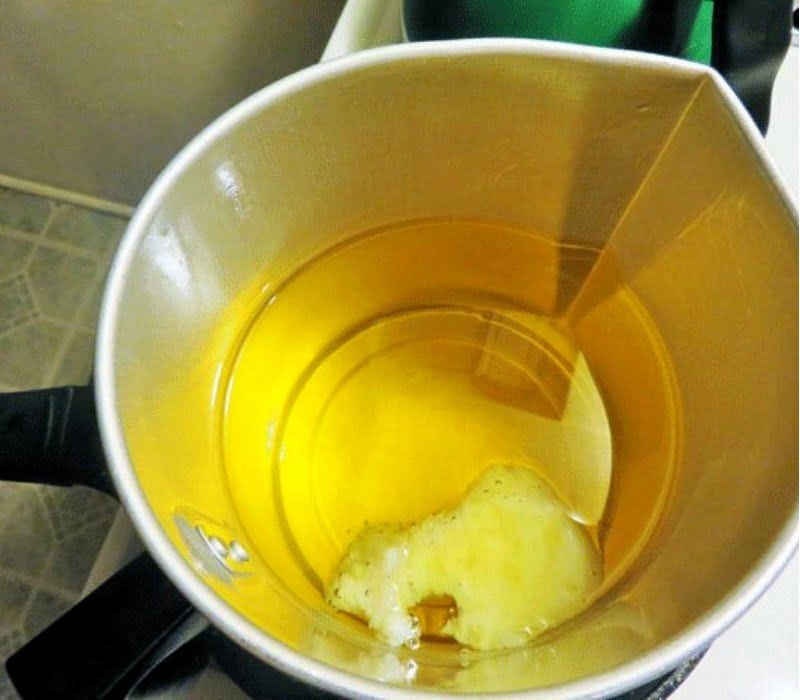Candle making has always been a cherished craft, allowing individuals to add a touch of warmth and ambiance to their homes. However, what truly sets candles apart is the scent that fills the air when they are lit.
The choice of oils used in candle making plays a crucial role in determining the fragrance and overall experience of a candle. In this article, we delve into the fascinating world of candle making oils, exploring the importance of selecting the right oils and the excitement of creating unique scents.
Selecting the appropriate oils for candle making is vital as it directly impacts the quality and performance of the final product. Just as an artist chooses their colors carefully, so too must a candle maker select their oils thoughtfully.
Each oil possesses its own distinct characteristics, ranging from delicate florals to invigorating citrus notes or earthy muskiness. By understanding and utilizing these characteristics effectively, candle makers can create candles that not only evoke specific moods but also bring joy to those who experience them.
One of the most fascinating aspects of candle making lies in formulating custom scents by combining different oils. This capability allows for endless possibilities and invites creativity to thrive. Whether it’s curating relaxing lavender-infused candles for tranquility or concocting energizing citrus blends for invigoration, the ability to tailor-make scents adds a personal touch to each candle. Creating unique combinations brings both excitement and satisfaction as one discovers their signature scent.
In this guide, we will journey through essential oils, fragrance oils, specialty oils, and explore various options within each category to inspire your own creations. From classic vanilla bean to exotic sandalwood or fresh linen reminiscent fragrances – there are endless choices waiting to be discovered. Let’s embark on this aromatic adventure together and unlock the full potential of what oils can do for your candle making endeavors.
Essential Oils
Definition and Benefits of Essential Oils in Candle Making
Essential oils are concentrated plant extracts that capture the natural fragrance and therapeutic properties of plants. These oils are often used in candle making to add aromatic scents that can uplift moods, promote relaxation, or create a specific ambiance. One of the significant benefits of using essential oils in candles is their ability to provide a more natural and authentic scent compared to artificial fragrances.
Unlike synthetic fragrances, essential oils are derived from natural sources and offer various health benefits. When candles infused with essential oils are burned, they release microscopic particles into the air which can have positive effects on our physical and emotional well-being. For example, lavender essential oil is known for its calming properties and can help reduce stress and anxiety levels when used in candles.
Popular Essential Oils Used for Candles
There is an abundance of essential oils available for candle making, each with its own unique characteristics and fragrance profiles. Some popular choices include:
- Lavender: With delicate, calming, and floral notes, lavender is perfect for creating relaxation candles or promoting better sleep.
- Citrus: Energizing and refreshing, citrus essential oils like lemon or orange bring a burst of invigorating scents to any space.
- Patchouli: Known for its earthy and musky aroma, patchouli adds depth and soothing qualities to candles.
- Vanilla: A classic favorite, vanilla offers a warm, sweet, and comforting scent that creates a cozy atmosphere.
It’s important to note that different brands or suppliers may offer variations in scent intensity or quality of essential oils. Therefore, it’s advisable to experiment with different sources to find high-quality oils that meet your desired aroma preferences. Additionally, it’s crucial to follow proper usage guidelines when incorporating essential oils into your candle-making process to ensure optimal results.
Fragrance Oils
When it comes to candle making, fragrance oils offer a wide range of advantages and possibilities that can enhance your candle creations. Unlike essential oils which are extracted directly from plants, fragrance oils are synthetic blends created specifically for their scent. This means that fragrance oils can offer a more diverse range of scents and can be blended to create unique and complex combinations that may not be possible with essential oils alone.
One of the key advantages of fragrance oils is the vast array of options available. Whether you’re looking for fruity, floral, woody, or even unusual scents, there is sure to be a fragrance oil that suits your preferences. From tropical fruits like mango and pineapple to warm spices like cinnamon and nutmeg, the possibilities are truly endless. Some popular fragrance oil options include:
- Fruity scents: Apple, strawberry, watermelon
- Floral scents: Jasmine, rose, lavender
- Earthy scents: Cedarwood, patchouli, sandalwood
- Sweet scents: Vanilla bean, caramel, chocolate
- Fresh scents: Ocean breeze, rain shower With the wide variety of fragrance oils available, it’s easy to find a scent profile that matches your desired ambiance or occasion. Whether you want to create a calming atmosphere for relaxation or an invigorating environment for productivity, there is a fragrance oil that can help you achieve your desired result.
When working with fragrance oils in candle making, it’s important to ensure safe handling and storage practices. Keep your fragrance oils stored in amber glass bottles away from direct sunlight or heat sources to preserve their potency. Additionally, always follow recommended usage levels as excessive use of fragrance oils can impact the structural integrity of your candles.
Unlock the world of endless scent possibilities by incorporating fragrance oils into your candle making process. With their diverse range of scents and ability to blend them, fragrance oils allow you to create truly unique and personalized candles that will delight your senses and those of others.
Exploring the Top Essential Oils for Candle Making
Lavender: delicate, calming, and floral notes perfect for relaxation candles
One of the top essential oils for candle making is lavender oil. Known for its delicate, calming, and floral notes, lavender oil is a popular choice for candles meant to promote relaxation and create a tranquil ambiance. Its soothing properties make it ideal for use in candles that are intended to be used during meditation or before bedtime to help calm the mind and induce a state of relaxation.
Citrus: uplifting, energizing, and refreshing scents to invigorate any space
Another essential oil that is widely used in candle making is citrus oil. With its uplifting, energizing, and refreshing scents, citrus oils like lemon, orange, and grapefruit can invigorate any space. These vibrant oils are perfect for creating candles that boost mood and energy levels. The zesty aroma of citrus oils is often associated with feelings of freshness and cleanliness, making them an excellent choice for candles used in living areas or bathrooms.
Patchouli: earthy and musky aroma for grounding and soothing candles
For those seeking a more earthy and musky aroma in their candles, patchouli oil is an excellent option. Patchouli oil has been used for centuries due to its grounding and soothing properties. Its distinct scent adds depth and complexity to any candle blend, creating a warm ambiance that promotes relaxation. Patchouli-scented candles are often used during self-care practices such as yoga or meditation.
Vanilla: warm, sweet and comforting scent ideal for cozy and inviting candles
Known for its warm, sweet, and comforting scent profile, vanilla essential oil is a staple in the world of candle making. Vanilla-scented candles create a cozy and inviting atmosphere that instantly makes any space feel like home.
The rich aroma of vanilla is often associated with feelings of warmth and nostalgia, making it a popular choice for candles used during winter months or on special occasions. Its versatility allows for easy pairing with other essential oils to create custom blends that are unique to each individual’s preferences.
By utilizing these top essential oils in candle making, crafters can create customized and captivating scents that transform any space into a sanctuary of relaxation or invigoration. Whether you prefer the delicate notes of lavender, the energizing aroma of citrus, the grounding fragrance of patchouli, or the comforting scent of vanilla, exploring the world of essential oils opens up endless possibilities for creating memorable and aromatic candle experiences.
Unleashing the Power of Fragrance Oils in Your Candle Creations
When it comes to candle making, fragrance oils offer a world of endless possibilities. Unlike essential oils, fragrance oils are synthetic and specifically formulated to create captivating scents that can’t be found in nature. They are highly concentrated and provide a stronger, more long-lasting aroma compared to essential oils.
One popular fragrance oil for candle making is Vanilla Bean. This classic and timeless scent fills the room with a rich and creamy aroma, creating a warm and inviting ambiance. Vanilla Bean fragrance oil pairs well with other scents such as lavender or citrus for a unique combination that appeals to many.
If you’re looking for a scent that brings tranquility, consider using Sandalwood fragrance oil. Its woody and exotic aroma offers a sense of calmness and relaxation. Sandalwood also blends beautifully with floral notes like rose or jasmine, creating an elegant and soothing atmosphere.
For those who prefer a burst of energy, Black Cherry fragrance oil is an excellent choice. With its fruity and vibrant scent, it instantly uplifts any space and creates an invigorating experience. Black Cherry works well on its own as well as paired with fresh linens or citrus scents to add depth to the fragrance profile.
Fresh Linen fragrance oil provides a clean and crisp scent reminiscent of freshly laundered sheets. It evokes feelings of cleanliness and purity, making it an ideal option for candles placed in bathrooms or bedrooms. Fresh Linen blends well with other aromas such as eucalyptus or peppermint for a refreshing twist.
Incorporating fragrance oils into your candle creations allows you to craft unique scents that suit your personal preferences or cater to specific moods or occasions. The key is to experiment with different combinations and test them out before settling on your signature scent.
To achieve the desired results when mixing fragrance oils, start with a small amount and gradually add more to avoid overpowering the aroma. Keep in mind that some scents may intensify or mellow down after the candle has cured, so it’s important to take notes and observe how the scent develops over time.
When using fragrance oils, it’s essential to follow safety measures to ensure a safe candle-making process. Only use fragrance oils specifically designed for candle making, as other types of oils may not burn properly or release harmful fumes. Adhere to recommended proportions and usage levels provided by the manufacturer, and always handle and store your oils in a secure and well-ventilated area.
Unleash your creativity and enjoy the power of fragrance oils in your candle creations. With an array of options available, you can truly personalize your candles and fill your space with captivating scents that bring joy, relaxation, or invigoration. Start exploring today and find your perfect combination of fragrance oils for an unforgettable candle experience.
Specialty Oils for Unique Candle Experiences
In addition to essential oils and fragrance oils, there is a diverse range of specialty oils that can be used in candle making to create unique and impactful scents. These specialty oils offer distinct aromas that can add depth and complexity to your candles, providing a one-of-a-kind experience for both you and your customers.
One popular specialty oil used in candle making is Eucalyptus oil. Known for its invigorating and clearing aroma, Eucalyptus oil is perfect for creating candles that promote refreshment and rejuvenation. The crisp scent of Eucalyptus can help clear the mind and uplift the spirits, making it an excellent choice for burning during moments of relaxation or when needing a burst of energy.
Another specialty oil that can elevate your candle creations is Cinnamon oil. The warm and spicy fragrance of Cinnamon is ideal for creating a cozy and inviting atmosphere. Whether you’re looking to add warmth to your living space or create a comforting ambiance during the colder months, Cinnamon oil can help achieve those goals with its delightful aroma.
For those seeking a cooling and uplifting scent, Peppermint oil is an excellent choice. Its refreshing qualities make it perfect for energizing and revitalizing candles. Peppermint oil can bring a sense of clarity and focus while also adding a clean and minty element to your candle creations.
Lastly, Rosemary oil is a popular specialty option due to its herbal and invigorating aroma. Not only does Rosemary provide a stimulating fragrance, but it also promotes mental clarity and concentration. Including Rosemary oil in your candle-making repertoire allows you to create candles specifically designed to enhance focus or provide an environment conducive to studying or working.
By incorporating these specialty oils into your candle-making process, you can unlock even more possibilities for creating personalized scents that cater to specific moods or atmospheres. Whether you choose Eucalyptus for a refreshing spa-like experience, Cinnamon for a cozy and inviting ambiance, Peppermint for an energizing environment, or Rosemary for increased focus and clarity, the specialty oils will help you craft candles that are truly unique and unforgettable.
Mixing and Matching
When it comes to candle making, one of the most exciting aspects is creating custom scents that are unique to your own brand or personal taste. By mixing and matching different oils, you can unleash your creativity and develop a signature scent that sets your candles apart from the rest. In this section, we will explore some scent pairing techniques and provide tips on how to create custom candle scents.
To begin creating custom candle scents, it’s important to understand the fragrance notes of different oils. Just like in perfumery, candles are composed of top, middle, and base notes.
Top notes are the first scents you smell when you light a candle, while middle notes emerge after the top notes have evaporated, and base notes provide depth and longevity to the scent. To create a well-balanced custom scent, it’s essential to have a good understanding of these fragrance notes.
One technique for mixing fragrances is called blending by contrast. This involves pairing oils with contrasting characteristics such as sweet and spicy or floral and woody to create an interesting yet harmonious aroma.
For example, combining the sweet scent of vanilla with the warm spiciness of cinnamon can result in a cozy and inviting candle scent perfect for autumn evenings. Another approach is blending by similarity – combining oils with similar characteristics such as citrusy or herbal scents can create a more cohesive fragrance profile.
| Scent Pairings | Description |
|---|---|
| Lavender + Lemon | A floral-citrus blend that promotes relaxation |
| Rosemary + Mint | An invigorating combination for an energizing atmosphere |
| Sandalwood + Bergamot | A woody-citrus fusion that offers a sense of tranquility |
When experimenting with scent combinations, it’s important to start with small amounts and gradually increase the proportions as needed. Keep in mind that certain oils may have a stronger aroma than others, so it’s crucial to find the right balance. Additionally, documenting your recipes and taking notes on the proportions used will help you replicate successful custom scents in the future.
Creating custom candle scents is an enchanting process that allows you to tap into your creativity and express your unique style. Whether you’re mixing contrasting fragrances or blending oils with similar characteristics, the possibilities are endless. By exploring different scent pairings and experimenting with various combinations, you can create truly personalized candles that delight your customers or create a serene ambiance in your own space.
Safety Measures and Tips for Proper Oil Usage in Candle Making
Candle making can be a fun and enjoyable hobby, but it’s important to prioritize safety when working with oils. Using oils specifically designed for candle making is crucial to ensure the best results and prevent any potential hazards. Here are some safety measures and tips for proper oil usage in candle making:
- Use oils specifically designed for candle making: Not all oils are suitable for use in candles. It’s important to use fragrance oils or essential oils that are specifically formulated for candle making. These oils have been tested and approved for use in candles and will provide a better scent throw while burning.
- Follow recommended usage levels: Each fragrance oil or essential oil will have specific recommended usage levels provided by the manufacturer. It’s important to follow these guidelines to ensure that the scent is not too overpowering or weak in the finished candle. Overloading your candles with oil can lead to poor burn performance and potentially create a fire hazard.
- Proper handling and storage: When working with oils, it’s important to handle them with care. Always wear gloves when measuring and pouring oils to protect your skin from irritation or allergic reactions. Oils should also be stored in a cool, dry place away from direct sunlight.
- Test your fragrance combinations: Before adding oils into your entire batch of wax, it’s a good idea to test different fragrance combinations on a small scale first. This will allow you to see how well the scents blend together before committing to larger quantities.
By following these safety measures and tips, you can enjoy the process of creating beautifully scented candles while ensuring a safe candle-making experience.
| Safety Measures | Tips |
|---|---|
| Use oils specifically designed for candle making | Follow recommended usage levels |
| Proper handling and storage | Test your fragrance combinations |
Conclusion
In conclusion, the world of candle making oils offers endless possibilities for creating unique and personalized scents. The use of essential oils and fragrance oils provides a wide range of options to suit every preference and mood. Whether you are looking for a calming lavender scent, an energizing citrus aroma, or a cozy vanilla fragrance, there is an oil that can help you achieve your desired atmosphere.
By exploring the characteristics and benefits of different oils, you can unlock the power of scent in your candle creations. Essential oils offer natural aromas derived from plants, each with their own distinct properties. Fragrance oils provide even more options, with a diverse range of scents that can fill any room with an enchanting aroma.
Mixing and matching oils allows you to create custom candle scents that reflect your personal style and preferences. By experimenting with different combinations, you can discover your very own signature scent that sets your candles apart from the rest. Remember to follow safety measures and usage guidelines when handling oils to ensure a successful and enjoyable candle-making experience.
So go ahead, dive into the world of candle making oils and unleash your creativity. With a little experimentation and exploration, you can find your perfect combination of scents to create candles that not only illuminate but also captivate the senses. Let your imagination soar as you embark on this aromatic journey towards finding your signature scent in the world of candle making.
Frequently Asked Questions
Do you need special oils for candle making?
When it comes to candle making, special oils are indeed required. While it is possible to use standard cooking oils or other types of oil as a fuel source for candles, these may not provide the best results when it comes to scent throw and burn quality. Instead, it is recommended to use specialized candle-making oils that are specifically designed for this purpose.
These oils are typically formulated with a blend of fragrance and carrier oils that are carefully chosen to provide optimal scent diffusion and combustion properties in candles. Using these specialized oils can help achieve the desired fragrance intensity, even burn, and long-lasting scent in the finished candles.
What kind of oil can you burn as candle?
A wide variety of oils can be burned as candles, but not all oils are suitable or safe for this purpose. When it comes to candle burning, natural waxes such as soy wax or beeswax are commonly used along with fragrant oils that can be directly ignited. Some popular choices include scented essential oils derived from plants, which release their aroma when heated or burned.
These essential oils offer the added benefit of potentially having therapeutic properties like relaxation or stress relief depending on the specific oil used. While essential oils work well for some individuals who prefer a more natural approach, other options like fragrance oils (synthetic scents) can also be used effectively if desired.
Is it better to make candles with essential oils or fragrance oils?
The choice between using essential oils or fragrance oils in candle making ultimately depends on personal preference and the desired outcome of the finished product. Essential oils are derived from natural plant sources and often have a distinct aroma that is characteristic of the plant they come from. They can provide a more authentic and nuanced scent experience compared to synthetic fragrance oils. Additionally, some people appreciate the potential therapeutic benefits associated with certain essential oil scents.
On the other hand, fragrance oils are created synthetically and offer an extensive range of scents beyond what is naturally available in essential form. They tend to have stronger throw power and better stability over time compared to essential oils. Furthermore, they can be more cost-effective for large-scale candle production. Ultimately, the decision between using essential oils or fragrance oils will depend on factors such as personal preference, desired scent profile, cost considerations, and any potential therapeutic benefits that may be sought after.

Welcome to my candle making blog! In this blog, I will be sharing my tips and tricks for making candles. I will also be sharing some of my favorite recipes.





